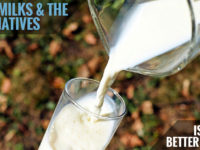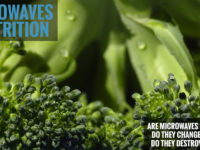I want to preface this post with a disclaimer: I enjoy kombucha. I like its acidity, its light carbonation, and its flavor. As such, this article is not meant to convince you that it’s not worth it to drink kombucha if you enjoy it—it’s just meant to ground your pleasure in reality.
The reality I’m talking about is the presence or absence of any discernible health benefits in kombucha. Pick up any commercially produced bottle, and you’re sure to see boasts about health benefits. Talk to your friends who love kombucha, and they’ll definitely let you know about how healthy it is. And if you dare peer through the looking glass of the internet, you may come away believing kombucha has nigh magical powers.
I, too, would like to believe that the foods and drinks I choose to consume are healthy—but I also try to be skeptical. Certainly, we can dismiss out of hand accounts that kombucha cures or prevents any type of disease, but what about milder claims that it might improve digestion or relieve inflammatory pain? Could there be truth to these? We shall see.
What Is Kombucha?
Kombucha is fermented tea, usually black tea or green tea. While foods like sauerkraut and kimchee are anaerobically fermented with only bacteria, and drinks like beer are anaerobically fermented with only yeast, kombucha is aerobically fermented with a combination of both in the form of a SCOBY—or “symbiotic colony of bacteria and yeast”. This SCOBY is the slimy mat-like thing you see floating at the top of a kombucha batch, and while often referred to as a mushroom, it’s not. There are no mushrooms in kombucha, just bacteria and yeast (which, to be fair, is a type of fungus).
The bacteria in the SCOBY are acetic acid bacteria, notably species of the Gluconobacter genus and the Acetobacter genus. The most prolific of these bacteria is Gluconacetobacter xylinus, a bacterium that is capable of producing cellulose (which helps tie the SCOBY together and keep it afloat) and acetan (a slimy gum-like carbohydrate that also helps). Regardless of the specific acetic acid bacterial make-up of the SCOBY, all acetic acid bacteria are obligate aerobes, meaning they require oxygen to live and will die in an anaerobic environment (this is important for later, so keep it in mind). As their name suggests, they all also produce acetic acid—AKA, vinegar—from ethanol and sugar, thereby providing kombucha its sour taste.
As with the bacteria, the yeast in the SCOBY are also consistent, and are always of the Saccharomycetaceae family (which includes the genera Saccharomyces, or brewer’s yeast, and Candida, among others). Ultimately, the yeasts don’t matter much, however—they all serve to metabolize sugars into both ethanol and acetic acid, and in the presence of oxygen (which is always, when it comes to kombucha) will further metabolize the ethanol to acetic acid.
Over the period of a week to a month, the kombucha SCOBY will ferment the sugars you add to the tea at the beginning of the cycle into various organic acids, mostly acetic acid (white vinegar) and gluconic acid, with the possibility of a small amount of glucuronic acid also being found—glucuronic acid is one of the kombucha compounds most frequently cited for health benefits. During this fermentation period, small amounts of ethanol will also be produced, but since oxygen is always present, the ethanol will be rapidly metabolized by the bacteria and yeasts and won’t rise above about 0.5% alcohol by volume (and will usually be far lower).
So in the end, kombucha is a mix of tea and all of its normal constituents (such as caffeine and catechins), acetic acid bacteria, yeasts, common organic acids such as vinegar and gluconic acid, and very small amounts of ethanol. Now, let’s cover kombucha’s purported health benefits.
Does Kombucha Have Probiotic Benefits?
There are more bacterial cells in our gut than there are human cells in our entire body. These bacteria (mostly) aren’t mooches, parasites, or pathogens, however—they are critical to the health of our gut’s microbiome and our body in general. There’s still a lot we don’t understand (and that we often superlativize the benefits of), but we do know a healthy gut is important and can influence factors we would never have suspected, such as emotional well-being and obesity.
In the past decade or so, we’ve seen the rise of a great many probiotic products, all designed to replace the “bad bacteria” or bolster the “good bacteria” in your gut and thereby improve your health. We’ve also seen a micro-revolution in the production of fermented foods, which contain probiotic bacteria and (probably more importantly) the prebiotic fiber that feeds those bacteria.
Whether these probiotic products are really as beneficial as they advertise remains to be seen (we know they are in some cases, in others evidence is lacking), but there’s certainly no reason to suspect they’re harmful—unless you consider the very real possibility of sauerkraut-induced flatulence to be a harmful effect! Fermented foods, particularly, we can assume to be healthy simply by virtue of their base components—fibrous vegetables.
Let’s assume for the moment that there is a potential health benefit to probiotic bacteria, though, just for the sake of argument. Could kombucha be a good source of probiotic bacteria?
Unfortunately, the answer is a solid “no”.
The main family of bacteria present in fermented foods are the lactic acid bacteria. These bacteria are facultative anaerobes, or bacteria that can survive in either an oxygen-rich or -poor environment. Whether or not we eat fermented foods, we already have lactic acid bacteria in our guts—an oxygen-free environment. And when we make fermented foods, we also do so with an oxygen-free environment that encourages the growth of lactic acid bacteria and suppresses the growth of all other bacteria.
Now, kombucha may occasionally have some strains of lactic acid bacteria present—they don’t come to colonize our ferments from nowhere, after all, but rather are there all along—but far and away the most dominant family is the acetic acid bacteria. Acetic acid bacteria have zero probiotic activity, though, because they require oxygen to survive. In other words, they cannot survive in our gut, even if we wanted them to (which is questionable considering they’re not at all important to normal mammalian gut ecology).
Kombucha therefore cannot be considered to be a good probiotic. You may get some lactic acid bacteria from it every now and again, but if you really want probiotic benefits, you need to consume a food that encourages the production of lactic acid bacteria to the exclusion of all other strains.
Is Glucuronic Acid Kombucha’s Secret Miracle Detox Agent?
Another popular claim is that kombucha contains glucuronic acid, a chemical that our liver uses in the process of detoxification. The rationale behind this claim is part exaggeration and part bad biochemistry.
To begin with, we’re not even certain that kombucha routinely contains glucuronic acid. Most studies suggest that if it is present, it’s only in the thousandths of a gram per liter. Thus, it’s an exaggeration to claim that glucuronic acid is an important compound in kombucha—it’s not, it’s at best an extremely minor component.
Whether or not it’s present isn’t really important, though, because the idea that dietary glucuronic acid can improve our liver’s ability to detoxify is based on bad science. At the heart of the confusion is the fact that our liver doesn’t really use “glucuronic acid” to detoxify, but rather a very close chemical relative known as UDP-glucuronic acid—or “uridine diphosphate glucuronic acid”—of which glucuronic acid is but a single part. Without that UDP part of the moiety, glucuronic acid has no medical effect.
In the human body, UDP-glucuronic acid is metabolized from glucose through the uronic acid pathway, a mostly one-way, multi-stage ride that transforms basic glucose into UDP-glucuronic acid. It’s possible for the UDP-glucuronic acid to shed the UDP part of its moiety and become simple glucuronic acid, but—importantly—it’s impossible for the human body to tack that UDP back on.
Instead, any glucuronic acid obtained either from the diet or from this one-way path gets shuttled into a different metabolic pathway that converts it to xylulose and thereafter the formation of 5-carbon sugars (pentoses). Pentoses are important, but certainly not dependent (or even vaguely rely) on either dietary glucuronic acid or the occasional metabolic byproduct of the uronic acid pathway.
In bacteria, glucuronic acid is produced in much the same way, with glucose as the starting point. Unlike humans, however, the acetic acid in bacteria don’t stop at the UDP-glucuronic acid checkpoint, but rather ditch the UDP part of the moiety in order to create basic glucuronic acid. This is because acetic acid bacteria don’t need UDP-glucuronic acid, but do need plain old glucuronic acid to create acetan (that carbohydrate mentioned earlier). Since UDP-glucuronic acid is a metabolic intermediate in the formation of glucuronic acid, there may be trace residual amounts of the chemical at any given time—but it will be found in orders of magnitude less than even the free glucuronic acid we barely find, and far too little to have any effect.
Furthermore, since the UDP-glucuronic acid is an intermediate and not a final product, it will all be found within the bacteria itself—which is mostly contained in the SCOBY, not the drink itself. The glucuronic acid may be freed from the acetan that ends up outside of the bacteria, but UDP-glucuronic acid almost certainly will not.
Long story short, kombucha doesn’t contain significant amounts of glucuronic acid, it contains virtually no UDP-glucuronic acid (the medically relevant type), any UDP-glucuronic acid that may possibly exist will all be within that appetizing SCOBY, and the human body can’t do anything with the basic glucuronic acid it may get from kombucha except convert it into a 5-carbon sugar like the ones we use as the backbone of DNA. There’s no detoxification benefit to be had.
Is Kombucha a Good Source of B Vitamins?
Kombucha is also sometimes claimed to be a good source of some vitamins. There may be a shred of truth to this, though there really have not been many studies analyzing the nutrient content of kombucha.
That being said, one study determined that a liter of kombucha contains about 0.24 micrograms of vitamin B1 (about 20-25% of your daily need) and 28 milligrams of vitamin C (about 35% of your daily need). This isn’t anything major—especially considering it’s per liter of kombucha—but it’s not nothing, either.
Given that you’ll almost certainly be meeting your needs for vitamin B1 and C through the rest of your diet, however, it’s hard to argue that kombucha is “good for you” in this regard.
Is Kombucha Dangerous?
On the other side of the equation, there are people worried that kombucha may be dangerous and recommend against drinking it.
True enough, there have been case reports linking the consumption of kombucha to liver and kidney failure and a few other ailments. On the weight of this evidence (and the lack of evidence that kombucha does anything beneficial), the scientists in the linked review recommend against drinking kombucha, at least therapeutically.
I can’t argue with their logic that there is no evidence it’ll be beneficial in the treatment of any disease, but it also seems like an overabundance of caution to recommend against drinking kombucha in general. Nearly every herbal product, including coffee and tea, produces dire-sounding case reports. In isolation, these seem scary—but the reality is that obscure reactions to common products happen routinely, just not commonly. In other words, the chances that anyone will have a reaction to a given item are high, but the chances that you (or the majority of people) will react are very low.
Given how popular kombucha is and how uncommon case reports on kombucha-related liver or kidney failure are, it seems likely that kombucha is as safe as any other popular drink (and considerably safer than many, like alcohol). All that being said, though, you should always be aware of the risks of consuming unpasteurized foods and drinks, especially if you are at greater risk such as during pregnancy.
Kombucha: Delicious, but Not Particularly Nutritious
At the end of the day, there isn’t anything magical or healthy about kombucha—but so what? Few of the beverages we routinely consume can be considered to be healthy, and many are anything but.
To be certain, you won’t get any benefits out of kombucha. There are no probiotic bacteria, it won’t boost your liver’s ability to detoxify, and whatever small amount of micronutrients are present are unlikely to contribute anything that you wouldn’t get in abundance from your diet anyway. But it’s also not dangerous, and it can taste pretty great. That’s all that we really need from a drink like kombucha—not miracles, not health, just pleasure.
If you enjoy kombucha, keep drinking it. If you don’t, don’t worry—you’re not missing out on anything.













Great article as always !
Could you do the same for milk-kefir ?
Thanks in advance
Best regards
You just crushed all my kombucha dreams 🙁 But great info nonetheless! I’ll still brew & drink but I can’t tell people it’s actually good for you anymore…